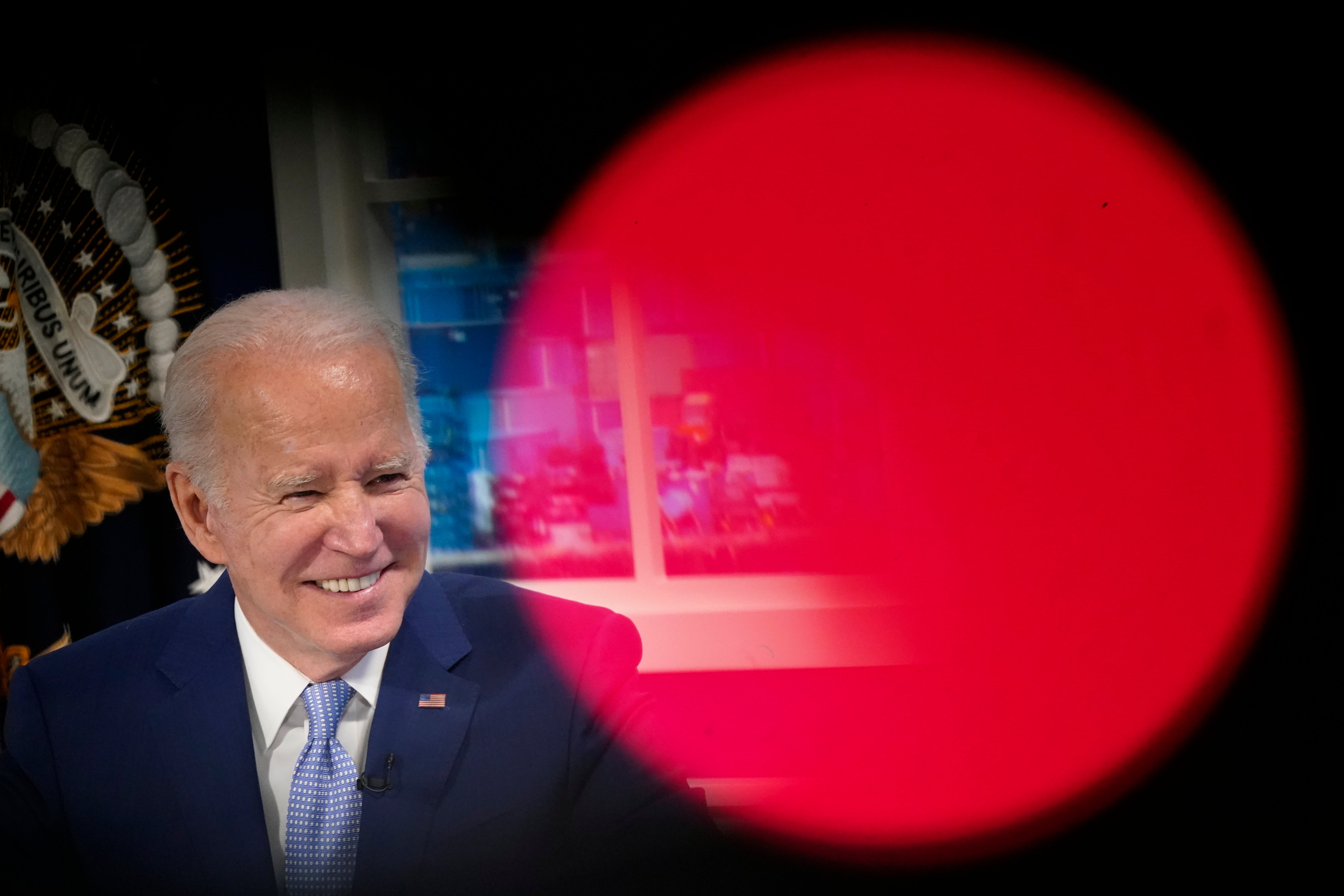Joe Biden says US supply chain fixed – it isn’t but in contrast to Boris Johnson he is at least trying
Biden set up a supply chain task force in June and has been holding productive meetings with business leaders. Boris Johnson got around to appointing former Tesco boss David Lewis in October but there’s not been much in terms of results from a government that prefers talking at rather than to business

Joe Biden may have been overstating the case when he said US government measures to tackle his nation’s stuttering supply chain had averted a pre-Christmas crisis across the Atlantic.
America’s problems aren’t yet fixed. Some of its business owners have made clear that they’re still having issues. The shops’ shelves aren’t as full as they might be in a normal holiday.
But at least the US president is trying. With inflation surging, he created a task force in June with the aim of addressing pandemic-created blockages in the supply chain that have resulted in shortages and higher inflation.
Meetings between company bosses and government officials have been held. The Biden administration has been moving. The president clearly wants to address the issues causing problems for the American people.
They don’t yet seem inclined to give him much credit. Perhaps they should take a look across the Atlantic. Britain provides a textbook example of what happens when you have a bad and blinkered government at the tiller in the midst of an international crisis.
It shows what might have happened to the US had Donald Trump managed to steal the election he lost. In No 10 Downing Street, Boris Johnson serves as Britain’s very own Trump with a thesaurus.
No wonder its supply chain issues are a whole lot worse and inflation is picking up speed in response.
A YouGov poll earlier this week demonstrated how much worse. It found more than half the British respondents (56 per cent) had direct experience of food shortages, which was significantly ahead of the US number (49 per cent) and far in excess of any of the European results, where the worst figure was Germany’s 18 per cent.
British ministers have sought to portray the issue as global and it is. It’s just that this country’s symptoms are far more serious than those of its peers.
More evidence of that came with the news that car production had slumped to its lowest level since 1984.
The Society of Motor Manufacturers and Traders (SMMT) said output declined by a stunning 28.7 per cent in November. CEO Mike Hawes described the situation as “incredibly worrying”.
The industry is braced for more gale-force headwinds in the new year when the full suite of Brexit customs controls will take effect.
Hawes called for “government to provide support measures in the same way it is recognising other Covid-impacted sectors”. Good luck with that.
In stark contrast contrast to the Biden administration, it barely seems to recognise that there is a problem. True, Sir David Lewis, the former Tesco boss, was appointed as a supply chain tsar in October.
But while Biden can point to things that his administration has done, it’s not entirely clear what, if anything, has come from the British guru’s advice.
One of his challenges may be the government’s craven refusal to face up the consequences of its actions.
Instead of squaring up to uncomfortable truths, such as the fact that Brexit, with all its many customs controls, has put a big fat barrier in the way of trade flows, it prefers to stick its fingers in its ears and shout, “Get thee gone, remainer scum!”
Another problem is its habit, again in contrast to the Biden administration, of talking at rather than to business and its apparent belief that the problems will magically just fix themselves.
They won’t. This is why Britons are suffering far more from the new shortage economy than the rest of the developed world. And that economy looks set to be with us for quite some time, with no end in sight to the Covid crisis.
So count your blessings, America. Joe mightn’t be a superhero but at least he’s making an effort. His British equivalents seem content to sit on their arses – or asses depending on your preference – at boozy lockdown-busting parties, when they’re not playing party politics or mouthing meaningless slogans.






Join our commenting forum
Join thought-provoking conversations, follow other Independent readers and see their replies
Comments